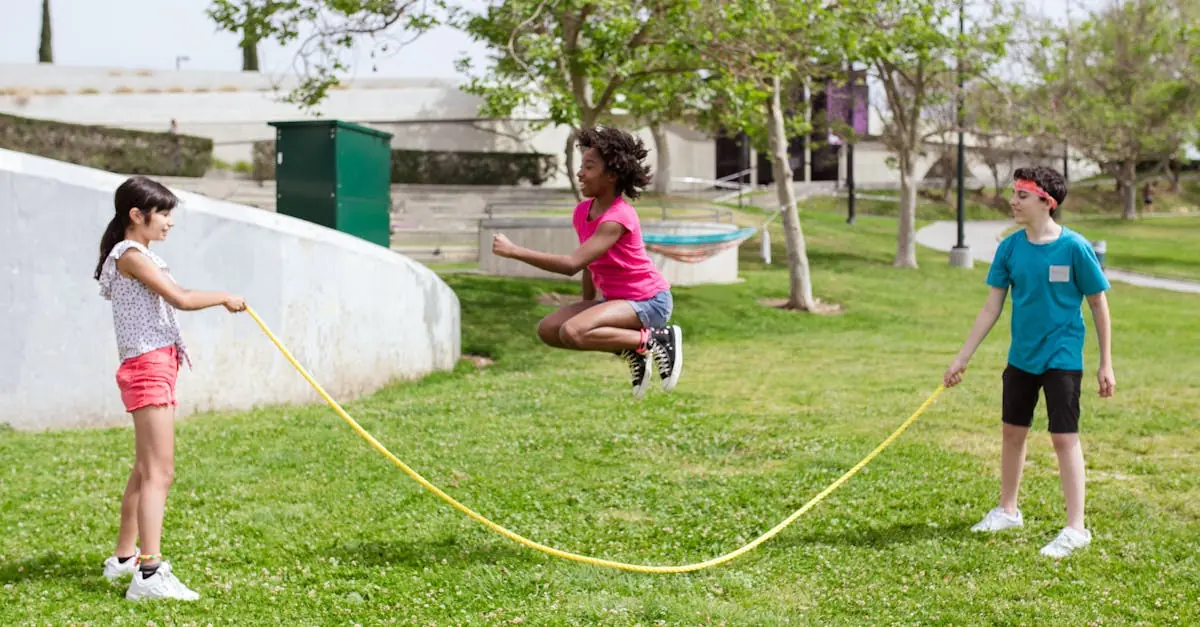Summer camp is the ultimate rite of passage for kids, filled with adventures, friendships, and memories that last a lifetime. But before parents dive headfirst into the camp brochures, they often find themselves facing the dreaded question: How much is this going to cost? Spoiler alert: it’s not just about the price of s’mores and canoe rentals.
Understanding summer camp costs can feel like deciphering a secret code. From tuition fees to hidden extras, parents need to navigate this financial maze carefully. But fear not! With a little insider knowledge, they can find the perfect camp that won’t break the bank. After all, who wants to spend the summer worrying about finances instead of enjoying the great outdoors? Let’s break down the costs and help parents make informed decisions while keeping the fun factor high.
Table of Contents
ToggleOverview of Summer Camp Costs
Summer camp costs can vary significantly based on location, camp type, and duration. Day camps typically range from $200 to $1,000 per week. Overnight camps may cost between $1,000 and $5,000 for a two-week session.
Additional expenses factor heavily into the overall cost. Supplies like clothing, equipment, and personal items can add anywhere from $100 to $300. Transportation expenses may also arise, especially for camps that offer pick-up and drop-off services or require travel.
Many camps offer tiered pricing based on the family’s income or financial circumstances. Scholarships provide another avenue for families seeking assistance with fees. Some camps may offer early bird discounts or refer-a-friend deals that help reduce costs.
Food and activities impact the total cost as well. Culinary offerings might not be included in the camp fee and may incur additional charges. Specialized programs, such as sports or arts, typically require higher fees due to unique staffing or resources.
Understanding the breakdown of these costs proves essential for parents. Budgeting effectively can lead to a more enjoyable camp experience without financial stress. Researching various camps and their pricing structures ensures families select the right fit, maintaining the balance between affordability and quality.
Factors Affecting Summer Camp Cost
Several elements influence the overall cost of summer camps. Understanding these factors helps parents make informed financial decisions.
Location
Camp costs vary significantly based on geographic location. Urban camps generally charge higher fees than those in rural areas. For instance, camps in densely populated cities might reach $1,000 per week, while those in smaller towns may only require $200-$500 weekly. Additionally, local demand can affect pricing; popular regions often have increased competition driving costs up. Families should consider travel expenses associated with distant camps, as these add to the total outlay. Evaluating multiple locations allows parents to find suitable camps aligned with their budgets.
Duration
Duration of the camp session plays a critical role in determining expenses. Most day camps typically last one week, ranging from $200 to $1,000 per week. In contrast, overnight camps often run for several weeks, costing between $1,000 and $5,000 for two weeks. Some families may choose longer sessions, which can offer discounts per week, reducing costs overall. Evaluating how many weeks a child attends can lead to cost-effective decisions. Balancing the desired length of stay with budget constraints shapes the final cost significantly.
Camp Type
Different types of camps target varied interests, impacting costs. Traditional camps focus on outdoor activities, while specialized camps cater to sports, arts, or academics, often charging premium rates. For example, adventure camps emphasizing rock climbing or sailing can range from $1,500 to $3,000 for two weeks. On the other hand, general day camps may offer more affordable pricing. Families should assess children’s interests to find a fitting camp that aligns with both preferences and budgets. Understanding the offerings helps ensure value and satisfaction in the summer experience.
Comparing Summer Camp Costs
Summer camp costs vary widely based on several factors. Understanding the distinctions between day camps and overnight camps, as well as the allure of specialty camps, helps parents make informed decisions.
Day Camps vs. Overnight Camps
Day camps typically charge between $200 and $1,000 per week. Programs run during daytime hours and allow children to return home each evening. Overnight camps come at a higher cost, ranging from $1,000 to $5,000 for a two-week session. Expenses cover accommodations, meals, and various activities. Families often choose day camps for convenience and lower costs, while overnight camps offer immersive experiences.
Specialty Camps
Specialty camps cater to specific interests like sports, arts, or science. These camps usually charge premium rates due to their tailored programs and expert staff. Costs often exceed standard camp fees, influenced by specialized training and resources. Average rates may vary from $1,000 to $3,500 for two weeks. Parents find the investment worthwhile for unique experiences and skill development.
Tips for Managing Summer Camp Costs
Managing summer camp costs requires strategic planning. Parents can take several effective steps to ease the financial burden.
Early Registration Discounts
Early registration often yields savings. Many camps offer discounts for families who enroll their children before specific deadlines. Savings can range from 10% to 20% off the total cost. Parents should check with individual camps about their discount policies to maximize savings. Planning ahead also ensures children secure a spot in preferred camps.
Scholarships and Financial Aid
Scholarships and financial aid provide essential support to families. Numerous camps offer these resources to assist with costs. Parents can inquire about available financial aid programs when researching camps. Applying for scholarships often involves a simple process. Many organizations and community groups may sponsor children’s participation. Such assistance makes summer camps more accessible for families facing financial constraints.
Navigating summer camp costs can feel overwhelming but understanding the factors at play can make the process easier. By exploring various camp options and being aware of potential expenses beyond tuition, parents can find a program that fits their budget. Utilizing discounts scholarships and early registration deals can further alleviate financial pressure.
Ultimately summer camp offers invaluable experiences that foster growth and friendships. With careful planning and research families can ensure their children enjoy a memorable summer without breaking the bank.






